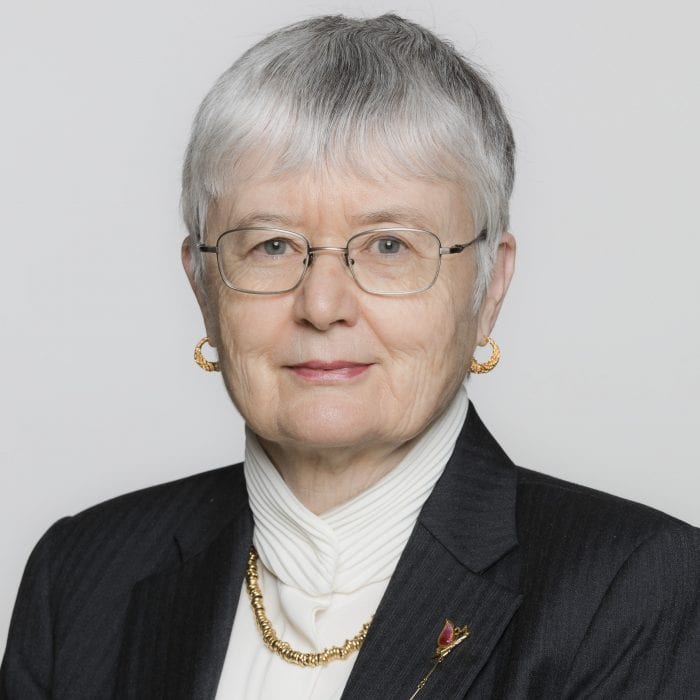-
Dr. Wright’s research interests are in the areas of cross-cultural management, international negotiations, strategic alliances, conditions for SME business success internationally, and the situation of women-owned SMEs in the digital economy. Her geographic area of interest is the Pacific Basin region. She has been cited in “Canadian Women Doing Business in Asia”, “Who’s Who in Canadian Business”, “Canadian Who’s Who”, “The World’s Who’s Who of Women”, and “International Businessmen’s Who’s Who”.
Honours
2013 EDC Professorship in International Business
2009 Honorary Professorship, Yunnan Normal University
2007 Internationalization Award, York University
2003 Best Paper Award, Supply Chain Management Conference McMaster University
Recent Publications
Chavoshi, S., Dentakos, S., Wintre, M.G. and Wright, L. (2017), "Acculturation Motivation in International Student Adjustment and Permanent Residency Intentions: A Mixed-Methods Approach", Journal of Emerging Adulthood, 5(1), 27-41.
Abstract
The present study uses a two-phase mixed-methods design to explore the role of motivation to acculturate within the international student experience. Hierarchical regression analyses were conducted to test acculturation motivation (AM) as a predictor of international student adjustment and permanent residency intentions, over and above age, gender, academic year, and English competence. Greater motivation to acculturate was indeed a significant predictor of international student adjustment and increased intentions of pursuing permanent host country residency. To better understand how international students’ experiences relate to levels of AM, qualitative analyses were employed. International students with low levels of AM were more likely to express negative feelings about cross-cultural adjustment, university perception, and peer relationships, compared to students with high levels of AM. Despite such differences, academic and developmental struggles as well as academic successes were similarly voiced across both comparison groups.
Chavoshi, S., Dentakos, S., Wintre, M.G. and Wright, L. (2017), "A Developmental Sequence Model to University Adjustment of International Undergraduate Students (DSMUA)", Journal of International Students, 7(3), 703-727.
KeywordsAbstract
The current study proposes a Developmental Sequence Model to University Adjustment and uses a multifaceted measure, including academic, social and psychological adjustment, to examine factors predictive of undergraduate international student adjustment. A hierarchic regression model is carried out on the Student Adaptation to College Questionnaire to examine theoretically pertinent predictors arranged in a developmental sequence in determining adjustment outcomes. This model accounted for over 60% of the variance in adjustment scores, and highlighted the importance of ecological factors in relation to student adjustment, such as social support, relationship with parents, and perceived institutional support as more useful than static measures of achievement such as high school GPA. Implications of these findings, including the important role of campus services, are discussed
Chavoshi, S., Kandasamy, A.R., Wintre, M.G. and Wright, L. (2015), "Are International Undergraduate Students Emerging Adults? Motivations for Studying Abroad", Journal of Emerging Adulthood, 3(4), 255-264.
KeywordsAbstract
This qualitative study investigated the decision-making processes underlying international students’ motivation to study abroad and whether they were related to features of Arnett’s definition of emerging adulthood. A total of 64 international undergraduate students (21 men and 43 women) from 26 countries and in different years of study were interviewed while attending a large, ethnically diverse Canadian university. Using thematic analyses, eight underlying themes of motivations were identified, namely, new experiences, education, improved future career and immigration prospects, qualities of the host country, qualities of the institution, financial reasons, location, and friends and relatives in the host country. Many motivational factors to study abroad highlighted and expanded upon characteristics of Arnett’s theory of emerging adulthood, whereas others were unique to international students. Practical implications include providing universities with information that developmentally situates international students, enhancing universities’ ability to assist students to attain their goals for studying abroad.
Wolf, B.M. and Wright, L. (2014), "Designing Curriculum for Real-World International Business Needs", Journal of Teaching in International Business, 25(3), 165-184.
Abstract
Economies continue to become more integrated through international trade and foreign investment, as well as by more, and more, complex global supply changes. With the expansion in the level and scope of international business (IB), it becomes all the more important that university graduates seeking careers in IB be able to “successfully hit the ground running” as they enter the labor force. The Schulich School of Business introduced a Certificate in Managing International Trade and Investment for undergraduates in 2012. Its aim was to intensify their learning by deepening their knowledge of IB and providing them with integrative courses, real-world learning, and cultural intelligence, enabling them to be effective in organizations as soon as they graduate. To ensure that the curriculum was in line with real-world needs, executives and other experts were interviewed to identify the skills they wanted to see in people they were hiring for their IB activities. The factors identified from this qualitative research informed the development of the Certificate. The global mind-set fostered will give students a competitive edge both in the recruitment process and on the job.
Courses Taught
Graduate level
IMBA courses:
Managing across Borders (INTLl6500)
Advanced Topics in International Business (INTL6070)
Internship Seminar (INTL6061)
Culture and Management (INTL5310)
International Dimensions of Organizational Behaviour (INTL5220)
Country Analysis - Singapore and Indonesia (INTL5344)
Region Analysis (INTL5339)
Study Tour to Latin America (developed for implementation in 2015)
EMBA courses:
Cross-cultural Management (EMBA 6480)
MBA courses:
Cross-Cultural Management (OBIR6320).
Undergraduate level courses:
Cultural Dimensions of Organizational Behaviour (INTL1300),
Advanced Cross-cultural Management (INTL3350).
Canadian Business Environment (for in-coming exchange students) (MGMT 3300)
Integrative International Business Seminar (IBUS4200)

Lorna Wright
Associate Professor Emerita